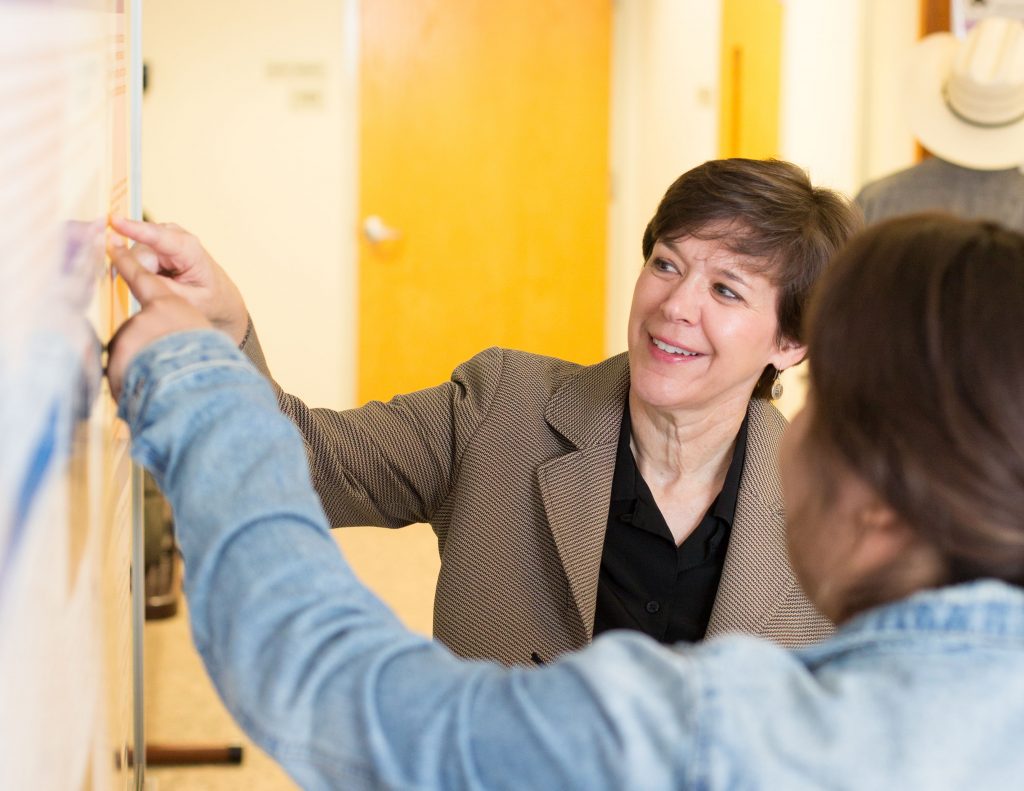Regents’ professor Julie Baldwin, founding director of Northern Arizona University’s Center for Health Equity Research, was elected to the U.S. National Academy of Medicine (NAM) for her pioneering research on community-driven HIV/AIDS and substance use prevention interventions for Indigenous youth implemented in school systems and Native communities throughout the world.
NAM is considered one of the highest honors in the fields of health and medicine and recognizes individuals who have demonstrated outstanding professional achievement and commitment to service.
Baldwin also was elected for her work in establishing innovative public health research and for developing training programs for university members and the wider community that create new pathways for Native and other historically underrepresented scientists.
A citizen of the Cherokee Nation of Oklahoma, Baldwin is one of the first female American Indian scholars and the first person from NAU to be elected to NAM.
“It’s such an honor for me to be elected to the National Academy of Medicine. In the past, I had the opportunity to serve on the Board of Population Health and Public Health Practice and the Roundtable on Health Equity of NAM, but never dreamed that I might be nominated by my peers to become a member of NAM,” Baldwin said. “I am truly grateful to my colleagues who nominated me and to my family, friends, coworkers and community partners who have supported me so much during my career. I look forward to continuing to represent NAU and to advocate for our local communities on a national level, to mentoring early career scholars and to paving the way for others to become members of the National Academies.”
Baldwin’s commitment to health equity research
In her role with the Center for Health Equity Research, Baldwin serves as the principal investigator for the center’s Southwest Health Equity Research Collaborative, which has a mission of increasing basic biomedical, clinical and behavioral research at NAU to address health inequities among diverse populations of the southwestern United States.
The $21.4 million National Institutes of Health grant to create the collaborative in 2017 was among the largest ever received by NAU. The center was renewed for another $21 million, five-year grant earlier this month.
Baldwin specializes in community-based participatory research, HIV/AIDS and substance abuse prevention and chronic disease prevention, working primarily with Indigenous, rural, underserved and underrepresented communities.
Baldwin earned her doctorate in behavioral sciences and health education from the Johns Hopkins Bloomberg School of Public Health.
Baldwin’s history with NAU dates back nearly 30 years. She served as a tenured faculty member at the Flagstaff-based university, with a joint appointment in the University of Arizona Mel and Enid Zuckerman College of Public Health, from 1994 to 2004. After a decade at the University of South Florida, Baldwin returned to NAU’s Department of Health Sciences in August 2015.
NAM elects 100 new members
NAM elected 90 new members nationally and 10 new members globally during its annual meeting on Oct. 17 bringing the total number of members to more than 2,200 people. With their election, NAM members make a commitment to volunteer their service in National Academies activities.
Current members elect new members through a process that recognizes individuals who have made major contributions to the advancement of the medical sciences, health care and public health.
At least one-quarter of the members are selected from fields outside the health professions from such fields as law, engineering, social sciences and the humanities, which builds a diversity of talent among NAM’s members.
“This extraordinary class of new members is comprised of exceptional scholars and leaders who have been at the forefront of responding to serious public health challenges, combatting social inequities and achieving innovative discoveries,” said National Academy of Medicine President Victor J. Dzau. “Their expertise will be vital to informing the future of health and medicine for the benefit of us all. I am truly honored to welcome these esteemed individuals to the National Academy of Medicine.”
Established as the Institute of Medicine in 1970 by the National Academy of Sciences, NAM addresses critical issues—in health, science, medicine and related policy—and inspires positive actions across sectors.
NAM works alongside the National Academy of Sciences and National Academy of Engineering to provide independent, objective analysis and advice to the nation while conducting other activities to solve complex problems and inform public policy decisions.



